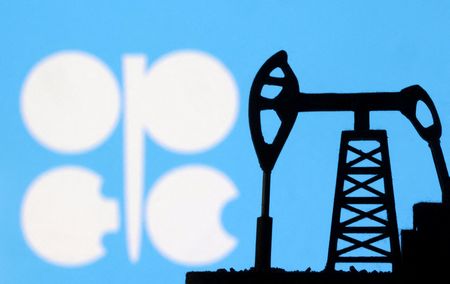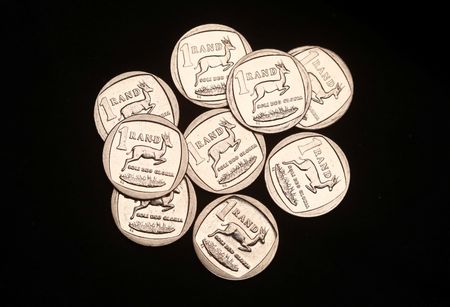By Alex Lawler
LONDON (Reuters) – OPEC oil output fell in January for a second month, a Reuters survey found, as a drop in exports from Nigeria and Iran offset a rebound from the United Arab Emirates where field maintenance had curbed output in December.
The Organization of the Petroleum Exporting Countries pumped 26.53 million barrels per day last month, down 50,000 bpd from December’s revised total, the survey showed on Wednesday, with Nigeria and Iran posting the largest drops.
The modest decline in output came as the wider OPEC+ group is keeping production cuts in place until the end of March due to global demand concerns and rising output outside the group. OPEC+ on Monday decided to stick with its plan to start raising output in April.
Nigerian production slipped by 60,000 bpd, the survey found, reflecting lower exports, although domestic usage is increasing as the Dangote refinery ramps up.
Iran’s output, which hit the highest since 2018 last year despite U.S. sanctions, also fell by 60,000 bpd, the survey found. It may soon be curbed by tighter sanctions from the administration of U.S. President Donald Trump, Goldman Sachs and other analysts have forecast.
Output in OPEC’s top two producers, Saudi Arabia and Iraq, edged lower, the survey found.
OPEC’s biggest rise, of 90,000 bpd, came from the UAE, the survey found. A source said partial field maintenance continued in January, having started in December.
While the survey indicates the UAE and Iraq are pumping below their targets and December data provided by OPEC’s secondary sources puts them not far above, other estimates such as those of the International Energy Agency suggest they are pumping significantly more.
Libya’s output rose by 40,000 bpd, continuing a recovery after the resolution of a dispute over control of the central bank that had led to production cuts. The country is exempt from OPEC+ agreements to limit output.
The Reuters survey aims to track supply to the market and is based on flows data from financial group LSEG, information from other companies that track flows such as Kpler, and information provided by sources at oil companies, OPEC and consultants.
(Additional reporting by Ahmad Ghaddar. Editing by Mark Potter)










